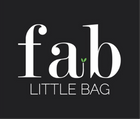
‘Biodegradable’ period products – the next big thing in greenwashing?

The plastic in disposable period products sticks around on this planet for 730,500x longer than it’s in use. It’s no wonder then that we get excited when a period product advertises itself as using ‘biodegradable’ or ‘compostable’ materials instead of plastic. Those two magic words allow us a moment of respite from the ever-present guilt about how our lifestyles negatively impact the environment. Nevertheless, most of us don’t really know what it means for a period product to have these labels, making us, in our wishful naivety, very susceptible to greenwashing…
Eco-friendly period products: what do the words ‘biodegradable’ and ‘compostable’ mean?
The most important thing to remember is that, if a period product is labelled ‘biodegradable’ or ‘compostable’, this does not mean that it will do so in any old conditions. Rather, it means that, if the product ends up in one of Britain’s industrial biodegrading/composting facilities, it can break down into organic matter (biodegrading) or into soil-nourishing ‘humus’ (composting). Sometimes the packaging for period pads and tampons might proudly announce that it is ‘home compostable’. So we can just chuck it in the garden and it will disappear, right? Nope. A product gets this label if it can break down within 60 days in a well-managed home compost at 20-30 degrees Celsius. Unless it is put in that environment, it won’t compost.
Another key point is that if a period product is described as ‘plant-based’ or a ‘bioplastic’, this does not mean that it is biodegradable or compostable. For one thing, it may still contain non-plant-based materials. Tampax Cotton Protection claims to have a ‘plant-based’ applicator, but it is actually only 90% plant-based. We also need to remember that some ‘plant-based’ plastics, especially those made of hemp and sugarcane, are created to be recycled not biodegraded.
Preventing period pollution: how should I dispose of period products?
Alright, you think, so how can I get my ‘biodegradable’ or ‘compostable’ period products to an industrial facility? They must have a curb collection or something! Unfortunately, it’s not that simple. The UK only has 18 industrial composters and most only take waste from businesses who can guarantee that it’s not contaminated. So, long story short, period products that are only industrially biodegradable or compostable are, for the time being, going to end up in landfill.
One common myth is that the council food waste caddy would be a good place to put ‘home compostable’ products. However, because most household food waste is broken down anaerobically (without oxygen) this doesn’t offer an alternative to the home composting process. Again, the only option here is to bin the product, and it’ll wind up in landfill. Most of us have a sneaking hope that, as the plastic replacements in a period product have a vaguely ‘planty’ label, they must be at least a little faster at breaking down in landfill than oil-based plastics. But this isn’t the case. Biodegradable and compostable products can’t break down in the oxygen-and-heat-deprived landfill environment. Therefore, like their oil-based counterparts, they way outstay their welcome.
Are Fab Little Bags Biodegradable?
Fab Little Bags used to be biodegradable, but they aren’t anymore. We made this change because we knew that the Fab Little Bags would not reach the industrial facilities which would enable them to break down, and so didn’t want to market them as biodegradable. Instead, we decided to focus on maximising the sustainability of the materials which make up the Fab Little Bag. Now they’re made from 60% sustainably grown sugarcane, 10% renewable corn starch and 30% recycled plastic, to contribute to the circular economy.
What About The Parts Of Period Products That Do Biodegrade Easily?
Even the parts of period products that naturally biodegrade relatively quickly (e.g. the bits made of organic cotton) can still take several months to disappear. This is plenty of time to clog sewers and disrupt water-based ecosystems. So, with the aid of a Fab Little Bag, we all need to keep binning!
By your friendly fabber
Courtenay Crow
